Gen. Soleimani played biggest role in establishing PMU: Iraq’s Nujaba movement
Iraq’s al-Nujaba Movement has hailed Iran’s top anti-terror commander General Qassem Soleimani for his role in curbing Daesh terrorists in Iraq and elsewhere.
Nasr al-Shammari, the deputy secretary-general and official spokesman for the popular movement, said General Soleimani played a decisive role in the formation of the Popular Mobilization Forces (PMU), better known as Hashd al-Sha’abi.
Shammari recounted that following the fall of northern Iraqi city of Mosul, General Soleimani moved quickly to equip the PMU with necessary weapons within hours and days to fight off Daesh terrorists.
He also credited Tehran and General Soleimani, the commander of the Quds Force of Iran’s Islamic Revolution Guards Corps (IRGC), with saving Baghdad when Daesh first unleashed its campaign in Iraq.
"Martyr Soleimani had the biggest and most important role in the formation of the Popular Mobilization Forces (PMU). He went to the offices of the Shia religious authorities (sources of emulation) in Iraq and explained the dangers that threatened the country after the fall of Mosul, especially the great threats that surrounded Baghdad and the holy shrines in Najaf and Karbala and promised that if a fatwa calling for jihad was issued by the religious authorities, he would provide any necessary support and this was actually achieved," he told Iran’s Ettela’at newspaper.
On the request of resistance groups, al-Shammari said, the IRGC commander set up training camps in various Iraqi governorates to train a large number of volunteers and pledged to provide all the necessities.
In 2014, the Daesh terror group made sweeping territorial gains in Iraq’s western and northern parts. Shortly afterwards, Iraq’s prominent Shia cleric Grand Ayatollah Ali al-Sistani issued a fatwa, calling on all Iraqi citizens to defend their country in the face of the terrorists.
The fatwa helped Shia fighters, Sunni tribesmen as well as Christian and Yezidi volunteers gather under the umbrella of the PMU units to reverse Daesh gains.
Al-Nujaba Movement is part of the PMU, an Iraqi government-sponsored umbrella organization composed of around 40 factions of volunteer counter-terrorism forces, including mostly Shia Muslims besides Sunni Muslims, Christians and Kurds.
The PMU fighters helped the army regain strength and reverse Daesh’s gains. The Iraqis finally managed to retake all the lost territory in 2017 with the help of volunteer forces and Iranian military advisors.
The Iraqi parliament has recognized Hashd al-Sha’abi as an official force with similar rights as those of the regular army.
Al-Shammari also held the US occupying forces and their allies accountable for the presence of Daesh and ensuing insecurity across Iraq.
"Earlier, on the first night of the fall of Mosul, Haj Qassem came to Iraq and delivered weapons and ammunition to Iraq within six hours, while the Americans asked for a six-year time limit (until the end of 2020) to deliver the weapons that Iraq had paid for!"
While pointing to the maximum coordination of al-Nujaba with all groups active in the Islamic resistance axis, al-Shammari expressed the readiness of his movement to confront the US wherever necessary.
In the early days of Daesh's emergence, Iraqi government forces, overwhelmed by the terror group’s lightning advances, suffered heavy blows on the battleground.
When foreign-backed takfiri outfits reared their heads, the IRGC commander emerged as a key strategist who led Iranian military advisers in Syria and Iraq.
The general was frequently pictured on the frontlines during anti-terrorism operations from Iraq’s Mosul to Syria’s Aleppo.
In November 2017, Soleimani declared the end of Daesh in a letter addressed to Leader of the Islamic Revolution Ayatollah Seyyed Ali Khamenei.
Last year, the Leader awarded Soleimani with Iran’s highest military order, the Order of Zulfaqar.
Hailed both by friends and foes as a major military tactician, General Soleimani topped Foreign Policy (FP)’s 2019 list of Global Thinkers in defense and security. It placed General Soleimani on top of the list of the most influential people in the defense and security sector.
In the January 3 drone strike, the second-in-command of Iraq’s PMU, Abu Mahdi al-Muhandis, and eight other companions were also killed.
US media reports revealed details of the assassination, saying the terrorist operation used Israeli intelligence and was run from the US Central Command (CENTCOM) headquarters in Qatar.
The Trump administration openly claimed responsibility.
Ayatollah Khamenei has said severe vengeance in due time awaits those behind the assassination.
Hezbollah strikes Israeli bases with drones, missiles
Iran calls for action in defense of Palestinian women
VIDEO | Sydney protests demand action as Israel faces ICC warrant for war crimes
VIDEO | Arrest warrant for Israeli war criminals
Iran to host ‘important’ ECO foreign ministers' meeting in Mashhad
Wounded in Israeli strike, health of Kamal Adwan Hospital's director worsens
VIDEO | Press TV's News Headlines
Iran reports 11% drop in domestic red meat supply


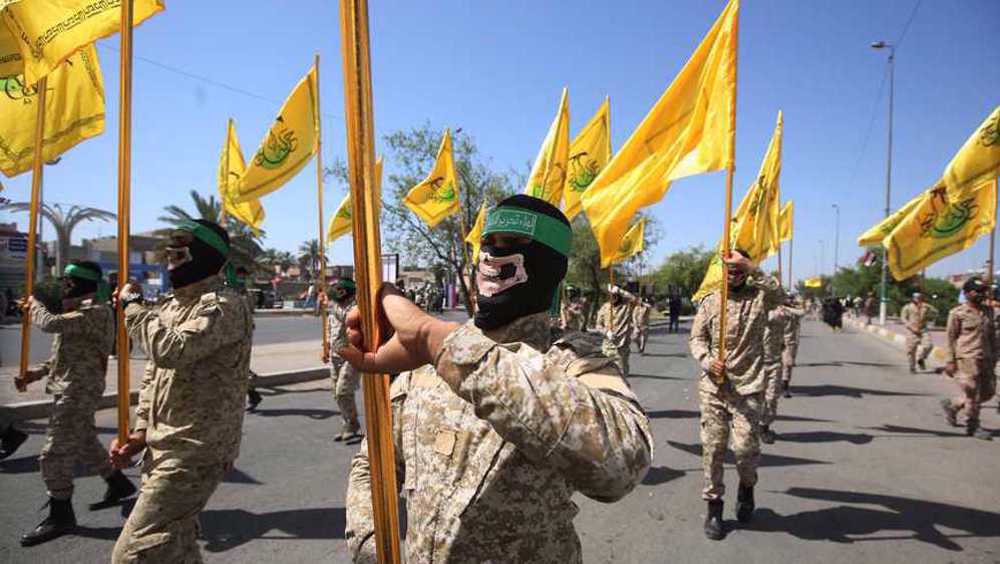




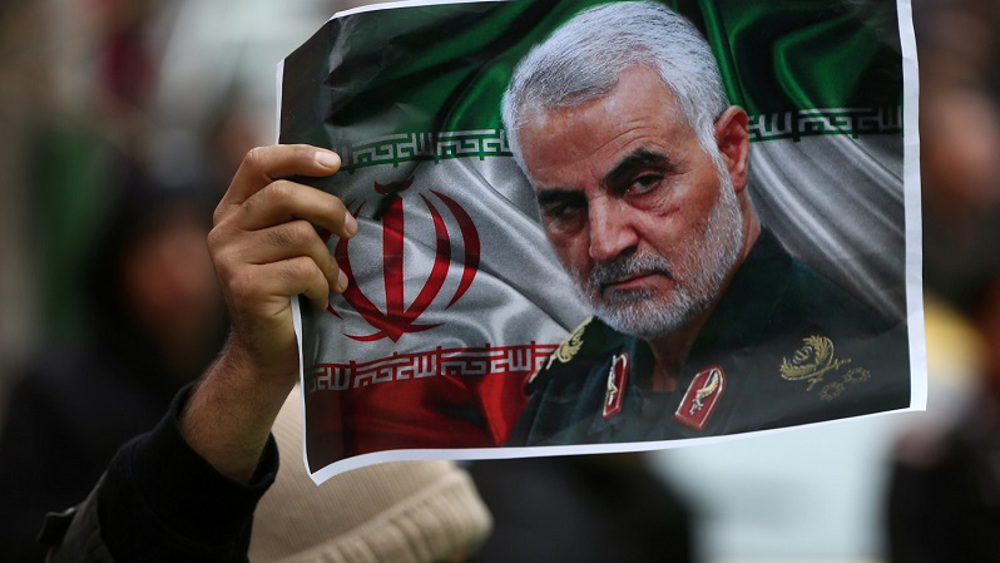
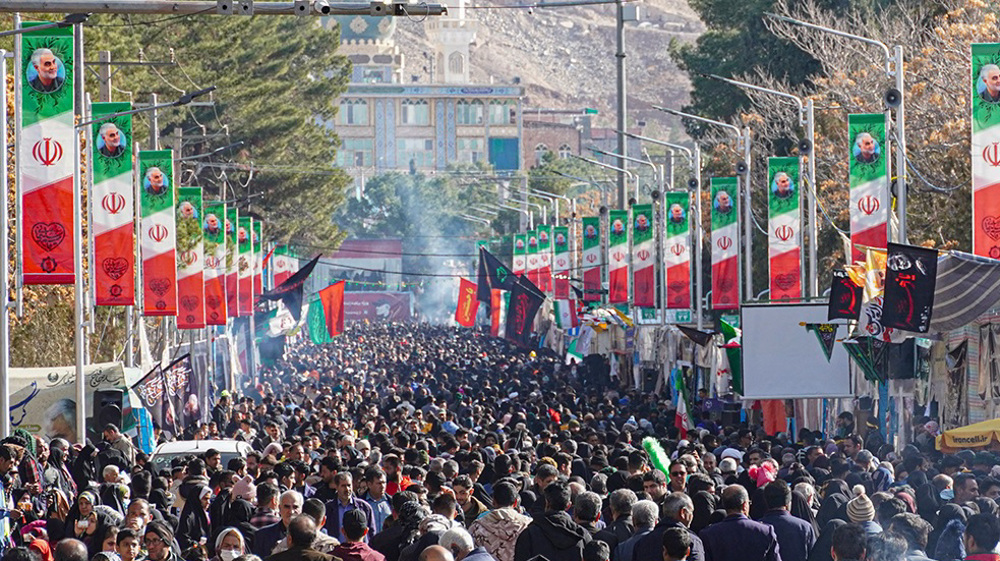
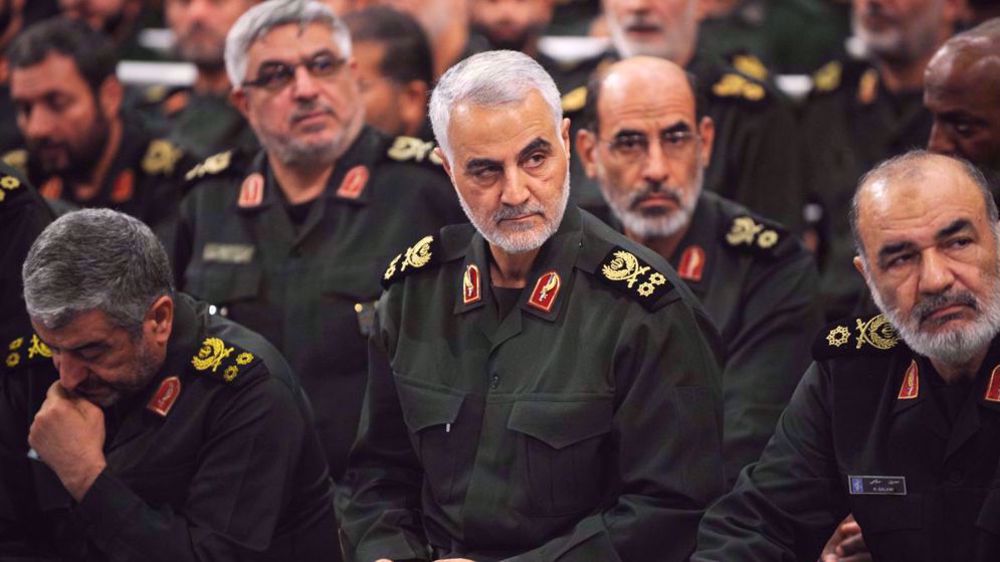





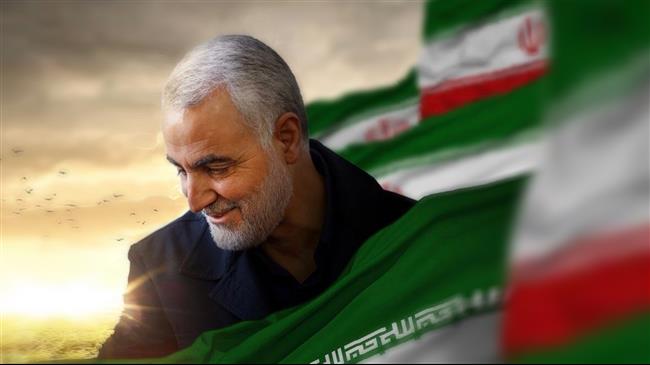
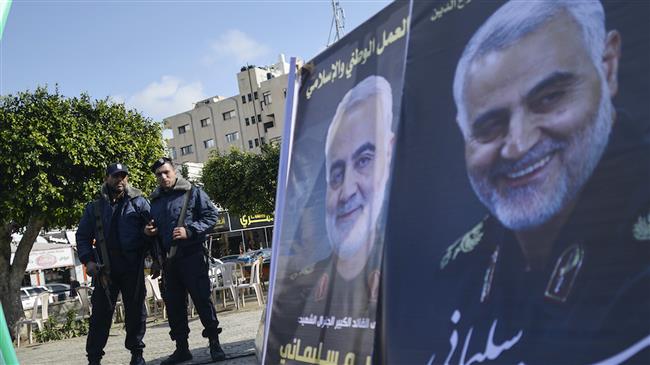
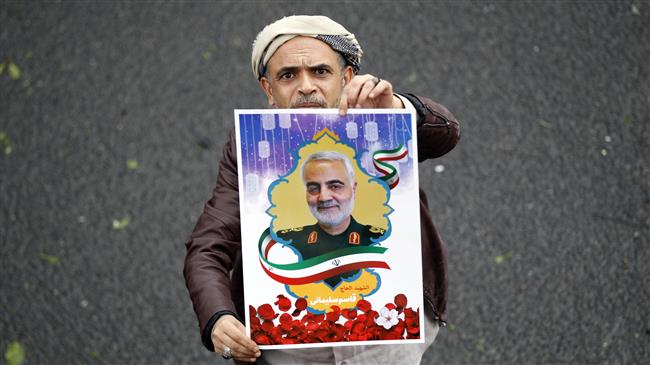
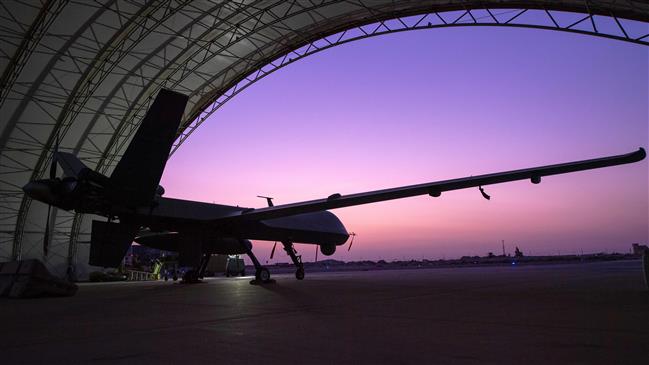

 This makes it easy to access the Press TV website
This makes it easy to access the Press TV website